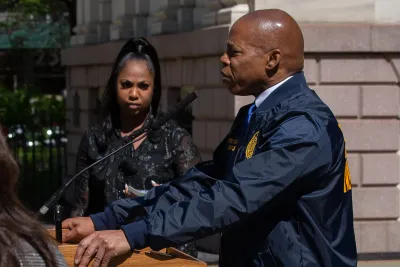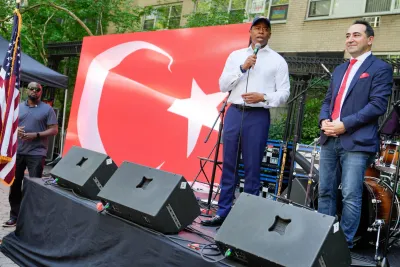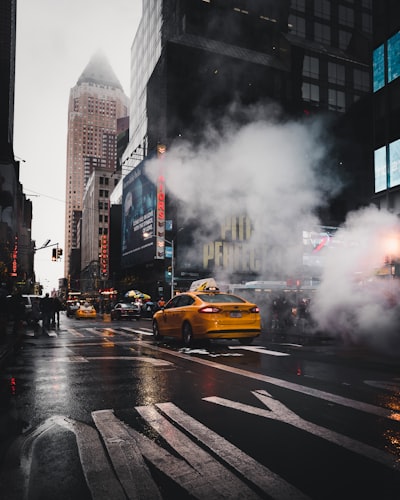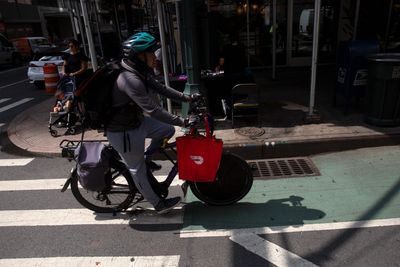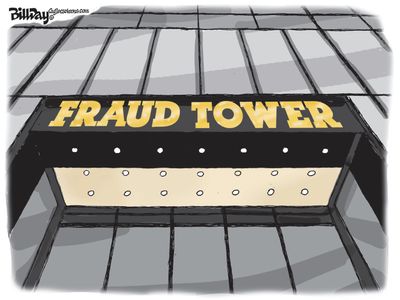Yoav Gonen, The City
This article was originally published on Jun 30 7:49pm EDT by THE CITY

The city Department of Education on Friday said it had determined that four yeshivas are significantly deficient in their secular instruction and recommended that 14 others should be deemed similarly deficient by the state Education Department, which has final authority in those cases.
The DOE found an additional seven yeshivas were providing an education that is “substantially equivalent” to that of public schools — the bar that must be met under state law and regulations — although only two of those were based on thorough reviews. The other five met the mark based on their affiliation with a registered high school, as allowed under revisions last year to state regulations.
The findings were made public almost eight years after the DOE said it was launching an investigation in response to a complaint by a group of advocates who alleged that several dozen Jewish religious schools were failing to teach students the basics in core subjects such as English and math.
The length of the probe sparked accusations that the administration of former Mayor Bill de Blasio was dragging its feet to favor Hasidic communities with which the mayor had close political ties. In one case, a Department of Investigation probe validated that claim.
Mayor Eric Adams also drew some concerns following his repeated public praise of the religious schools amid the ongoing probe and after a muted response to a devastating New York Times investigation of instruction at yeshivas, which are private schools that also take in public funds.
Both administrations also engaged in a protracted legal battle with THE CITY in an effort to block the release of detailed DOE observations from school visits — which were provided to 28 yeshivas that were under investigation as of December 2019 — arguing that their release could lead the schools to stop cooperating.
That battle is ongoing after the city government appealed a ruling in May by a Manhattan Supreme Court judge that the letters must be provided to THE CITY.
State officials said they would review the DOE’s recommendation on the 14 yeshivas, but declined to provide a timeline for making the final determinations.
In response to a lawsuit that was filed against the state Education Department last year by yeshiva supporters, a state court judge ruled in March that the agency can’t require parents to pull their kids from schools that aren’t meeting the “substantially equivalent” mark and can’t require those schools to close.
An appeal in that case is pending.
‘Cautiously Optimistic’
While the findings released Friday signal the pending closure of the investigative portion of the affair, the effort to remediate the yeshivas is set to continue.
DOE officials said their review focused on the four core subject areas — English language arts, math, social studies and science — and was conducted via school visits, curriculum review, meetings with school leaders and other documents provided by the yeshivas.
They noted that while most schools were cooperative, a “small number” were not.
The officials also said they plan to work with schools that need to bolster their instruction by helping them create remediation plans, which would give the deficient yeshivas one to two years to install programs that meet state standards.
Beatrice Weber, executive director of the nonprofit advocacy group Yaffed that initially brought the complaint to the DOE in July 2015, said the group was “cautiously optimistic” about the DOE’s findings.
But Weber also expressed concerns about the five yeshivas that were deemed adequate solely based on their affiliation with a registered school.
“These schools were not given a thorough review, and as long as schools are able to receive a rubber stamp of approval without real oversight, students will continue to be deprived of a basic education,” she said.
A group that formed to oppose the city government’s intrusion into the teachings at religious schools, Parents for Education and Religious Liberty in Schools (PEARLS), released a statement that rejected the DOE’s findings as “applying a skewed set of technical requirements.
“Parents choose yeshiva education for their children because of the religious, moral and educational philosophy and approach of those who lead yeshivas,” the group said in a statement. “They will continue to do so, regardless of how many government lawyers try to insist that yeshiva education is best measured by checklists they devise rather than the lives yeshiva graduates lead.”
Specific Findings
On Friday, the DOE also made public its detailed findings at the four yeshivas that were found to not be “substantially equivalent” and at two yeshivas that were.
The reviews in some cases point to significant failings in secular education.
At Yeshiva Bnei Shimon Yisroel of Sopron, a high school serving about 50 boys in Williamsburg, DOE officials observed classes being taught only in Yiddish.
“During the school visit, the DOE team did not observe any instruction, taught in English, in the core academic subjects of English, history, mathematics, and science,” the DOE findings say.
About a dozen other required subjects and topics were absent, including physical education, New York state history, and civics, as well as alcohol and drug abuse prevention and fire drills.
After an initial visit in May 2019, the school refused to allow any DOE observers access into the building.
The review teams found a similar lack of English instruction at Yeshiva Kerem Shlomo, a high school for boys in Borough Park, where observers saw classes being conducted only in Yiddish.
School administrators told DOE officials that they had one instructor — previously a public school substitute teacher for one year and then a library staffer — who by himself taught students English, math, science and history.
In December 2020, a representative from PEARLS wrote the DOE an email reporting that the school was no longer in operation, and that a new school — Bobover Yeshiva Bnei Zion — was operating in its place.
But DOE reviewers found no proof that Yeshiva Kerem Shlomo had closed, and surmised that it perhaps had simply changed its name. Their efforts at confirmation were inconclusive — so they said both schools must form a remediation plan or provide proof of the closure and opening.
While English instruction was observed at both of the other schools deemed deficient in secular education, reviewers obtained no proof that students were being taught in the four core subjects.
The specific observations released Friday include some of those sought by THE CITY for more than three years, including through the ongoing lawsuit against the DOE.
The DOE did not release its findings for the 14 schools where the state Education Department will make a final determination, which are also being sought as part of the lawsuit.
THE CITY is an independent, nonprofit news outlet dedicated to hard-hitting reporting that serves the people of New York.
